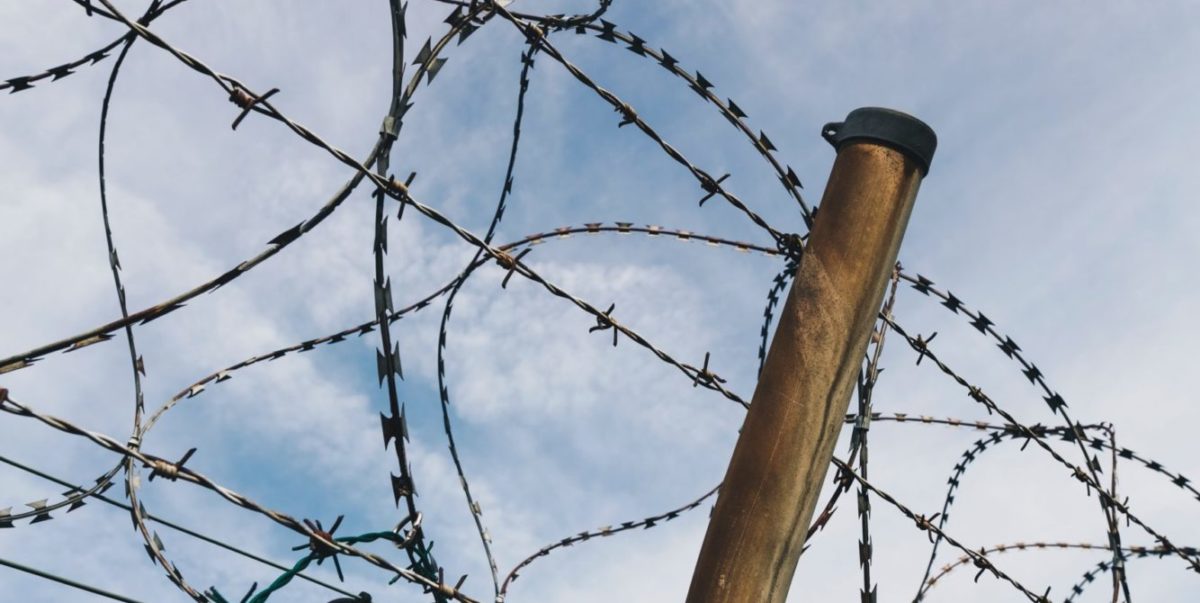The treatment of Black and Indigenous people in Canadian federal prisons hasn’t improved in the past decade. In many ways, it’s gotten worse.
That’s according to the 2021-22 annual report from the Office of the Correctional Investigator, which was tabled in Parliament on Nov. 1.
The report features findings from three national investigations that look at the experiences and outcomes of Black and Indigenous people in federal custody, while also reviewing restrictive confinement conditions and practices since the elimination of solitary confinement in 2019.
“I am very disappointed to report that the same systemic concerns and barriers identified nearly a decade ago, including discrimination, stereotyping, racial bias, and labeling of Black prisoners, remain as pervasive and persistent as before,” Correctional Investigator Dr. Ivan Zinger told reporters at a press conference. “In fact, the situation for Black people behind bars in Canada today is as bad, and, in some respects, worse than it was in 2013.”
Use of force against Black Canadians more likely
The 152-page report details how the population of incarcerated Black people are overrepresented at both maximum-security prisons and involuntary transfers, noting that they are more likely to be involved in a use of force incident regardless of their risk level, age, sentence length, or gender.
Black people in Canadian prisons are more likely to receive unequal or unfair treatment, through inmate pay levels, access to personal care items, meaningful prison employment, and early release opportunities. Not only that, but Black individuals interviewed for the report reported being called racial slurs and derogatory language by CSC staff, while also feeling ignored and disregarded by the system.
The report concluded that despite having lower overall rates of recidivism, Black people in Canada are more likely to be assessed as higher risk.
“At the most basic level, the correctional system should not serve to further perpetuate disadvantage,” Zinger told reporters.
Zinger emphasized the fact that the report’s findings are not new. Not only have they been documented in past reports, Zinger says recommendations should have been remedied by the Correctional Service of Canada by now.
“The Service has had ample time and opportunity to address disproportionately poorer outcomes for Black people under federal sentence,” Zinger said.
The report lays out 18 recommendations, eight of which are focused on improving the lives and outcomes of Black individuals incarcerated in Canadian federal penitentiaries.
Fifty-per cent of all incarcerated women are Indigenous
Zinger also renewed his Office’s call for the appointment of a Deputy Commissioner for Indigenous Corrections. The need for this appointment only continues to grow, as Indigenous women now make up at least 50 per cent of all women incarcerated in the country.
The recommendations laid out in the report range from banning dry cell placements beyond 72 hours to updating the CSC’s 2007 National Drug Strategy that promotes a zero-tolerance approach to drugs behind bars.
One recommendation follows calls from Halifax nurse Dr. Martha Paynter, who urged the federal government to reform the Mother-Child program in her recent book Abortion to Abolition: Reproductive Health and Justice in Canada.
The program is designed to help preserve relationships between mothers who are incarcerated and their child, in an effort to “promote stability and continuity for the mother-child relationship.”
Zinger’s recommendation calls for a review of program requirements and eligibility criteria in hopes of expanding access and participation within the program, while also removing barriers specifically facing Indigenous mothers.
Mother-Child program ‘barely used’
Wellness Within is a non-profit organization advocating for reproductive justice, prison abolition and health equity in Nova Scotia.
Last week, Wellness Within issued a press release responding to the OCI’s report, citing both “interest and concern,” — specifically related to the Mother-Child program.
Volunteer doulas and advocates for the incarcerated often engage with the Mother-Child program to assert and preserve the rights of people and children in prisons.
“In theory, the Mother Child Program allows some imprisoned mothers to have their young children reside with them either full or part time,” the release reads.
According to the release, organizers have observed the program “is barely used.” That observation was reaffirmed by the OCI report.
“Although most incarcerated women are mothers, and on a given day there are 700 women incarcerated in the federal system, in the past 20 years, there have only been 154 applications to the program,” the report reads.
Wellness Within says the program “lacks evaluation, is not evidence-based, and has such restrictive eligibility criteria that is available to only a handful of women who are disproportionately non-Indigenous.”
Women fastest growing demographic in prison system
That concern is compounded by the fact that women are the fastest growing population in Canadian federal prisons, increasing by 16.3 per cent between 2010 and 2019.
Ultimately, the organization believes investing additional funding in the Mother-Child program is the wrong way to respond to maternal incarceration. Instead, they say lawmakers should invest in alternatives to incarceration that keep families together.
The report also features the first of a two-part follow-up review of a 2012 report tabled in Parliament called Spirit Matters: Aboriginal People and the Corrections and Conditional Release Act.
“Indigenous individuals are increasingly entering the system at a younger age, spending considerably longer time behind bars, and returning to federal corrections at unprecedented rates compared to their non-Indigenous counterparts,” the report reads. “Year over year, Canadian prisons are being filled by Indigenous Peoples who are caught up in the proverbial revolving door, experiencing worse circumstances while inside, with few viable options for getting out and staying out.”
Findings show the overrepresentation of Indigenous people in federal prisons has only accelerated since the report was tabled, while disparities in outcomes continue to widen.
While Zinger noted he will have additional remarks when the investigation is complete, he said the CSC “does not seem to accept that it has any role or influence on reversing the perpetual crisis of Indigenous overrepresentation in Canadian jails and prisons.”



